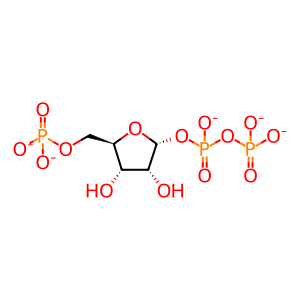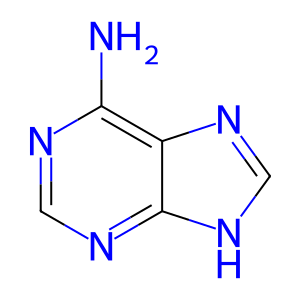Reaction: Defective APRT does not convert adenine to AMP
- in pathway: Defective APRT disrupts adenine salvage
Normally in humans, adenine generated in processes such as polyamine biosynthesisis can be salvaged by conversion to AMP, catalyzed by APRT (adenine phosphoribosyltransferase). In the absence of APRT activity, however, accumulated adenine is instead converted to 2,8-dioxo-adenine. Accumulation of insoluble crystals of 2,8-dioxo-adenine in the kidneys causes the kidney damage that is a major symptom of APRT deficiency in humans (Van Acker et al. 1977; Bollée et al. 2012). Three missense mutant alleles are annotated here (Chen et al. 1991; Hidaka et al. 1988; Sahota et al. 1994); nonsense, insertion-deletion, and splice-site mutations have also been reported (reviewed by Bollée et al. 2012).
Reaction - small molecule participants:
PRPP [cytosol]
Ade [cytosol]
Reactome.org reaction link: R-HSA-9734193
======
Reaction input - small molecules:
5-O-phosphonato-alpha-D-ribofuranosyl diphosphate(5-)
adenine
Reaction output - small molecules:
Reactome.org link: R-HSA-9734193


